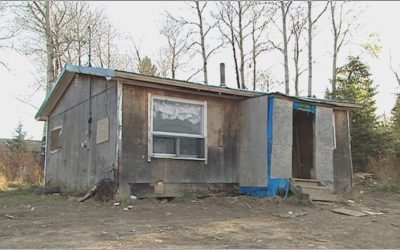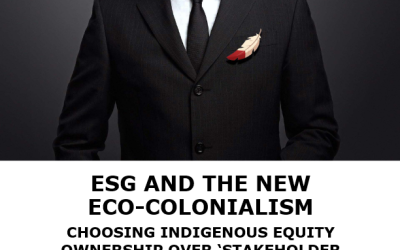When 15 band members appealed the election on a small northern Alberta reserve last summer, the electoral officer didn’t even open their letters.
“There was really nothing I could do,” says Stephen Didzena, an outsider asked by the Tallcree First Nation to oversee the election.
Like 60 other aboriginal communities in Canada, the band operates by custom election with no written code, nothing dictating a process for appeals.
Didzena sent a letter to band members calling for a new vote. Five days later, he retracted that letter, saying he had no authority to even do that much. Now nine months later, community members are still fighting it out.
It’s a repeating pattern: well-organized bands develop multimillion-dollar businesses, bring down crime in their communities and graduate lawyers and doctors. But when their governments fail, help for the weakest members often disappears and sometimes not even welfare and housing can get to those who need it.
In Alberta, eight of 44 First Nations, including Tallcree, have been forced into some form of third-party management, their daily affairs either directed or entirely controlled by a federal appointee.
Many agree changes are needed, but every attempt seems to end in accusations Ottawa is trying to force-feed aboriginal communities.
Even Didzena, who watched the Tallcree election fall apart, won’t call for Ottawa’s help. “Us Indians, we’ve had Big Brother since the Indian Act,” he says. “You want to create your own process that will inspire confidence.”
Last month, the Globe and Mail published leaked federal Indian Affairs documents listing three contentious areas needing review: elections, band membership lists and funding strategies for First Nations’ governments. The documents — including a memo to cabinet, briefing presentations prepared in house, and a draft proposal on how to redesign the $344-million funding program for native governments — suggest Ottawa wants to make certain all aboriginal elections are held by secret ballot, off-reserve members are able to vote, and every reserve has a written election code.
Policy-makers also want to bring in a form of access to information legislation on reserves and ensure all members can get copies of their own band’s financial statements.
The $344-million program was designed in the 1970s and early 1980s, when Ottawa’s first concern was simply to move responsibility for program administration down to First Nations bands, explains one draft policy document. That goal was achieved, new secretaries and managers now populate band offices, but the funding strategy doesn’t have any requirements to build efficiency, professionalism and use best practices.
Without changes, the paper concludes, “strong First Nation governments will only emerge in spite of INAC’s help, not because of it.”
The writers hoped changes could be brought in by April 2010.
Former minister Robert Nault tried similar reforms in 2002 but faced two years of criticism. Then Paul Martin killed the bill when he became prime minister in 2003, saying it had poisoned relations with aboriginal people. Nault said he would not seek re-election soon after.
The documents reference Nault’s ill-fated bill, but describe the new proposals as “less ambitious” and recommend a low-profile communications strategy.
Even so, outrage filled news stories after the leak as aboriginal leaders charged Ottawa with making a mockery of consultation.
Ottawa speaks with a “forked tongue,” Ermineskin chief and former Wetaskiwin MP Willie Littlechild said soon after.
“It’s always unilateral. We must begin to work together on these issues right from the outset (before the memo is written).”
It’s a debate about procedure, but many voiceless band members are fed up with delays, says Don Sandberg, a member of Manitoba’s Norway House First Nation and a fellow with the Frontier Centre for Public Policy. “I’m hearing that all over the place,” he says. “There is just too much room for abuse right now.”
Sandberg is running his own campaign to bring more accountability to First Nations. With a pickup truck and stack of papers, he and his team drive to each reserve and survey band members to rank transparency, efficiency and strength in their band offices.
His team started in Manitoba, last year added Saskatchewan, and this May plans to publish the first results for reserves in Alberta. A cash reward goes to the highest ranked, and every total becomes public.
“It’s going well,” said Virginia Smith, a team member from Alberta’s Blood Tribe. They set up booths and approach regular community members as they walk past. “The more participation from the community members, the louder the voice,” she tells skeptics. “It’s the voice of the community.”
Many leaders are honest, fair and create conditions for their people to succeed, Sandberg says. But in the least progressive, members can pay a high price for disagreeing with those in power. “Your child who wants to go on to post-secondary education could be denied. Your brother who needs a new home, he has a large family, that can be denied,” he says. “There’s a high price to pay for voting against them.”


